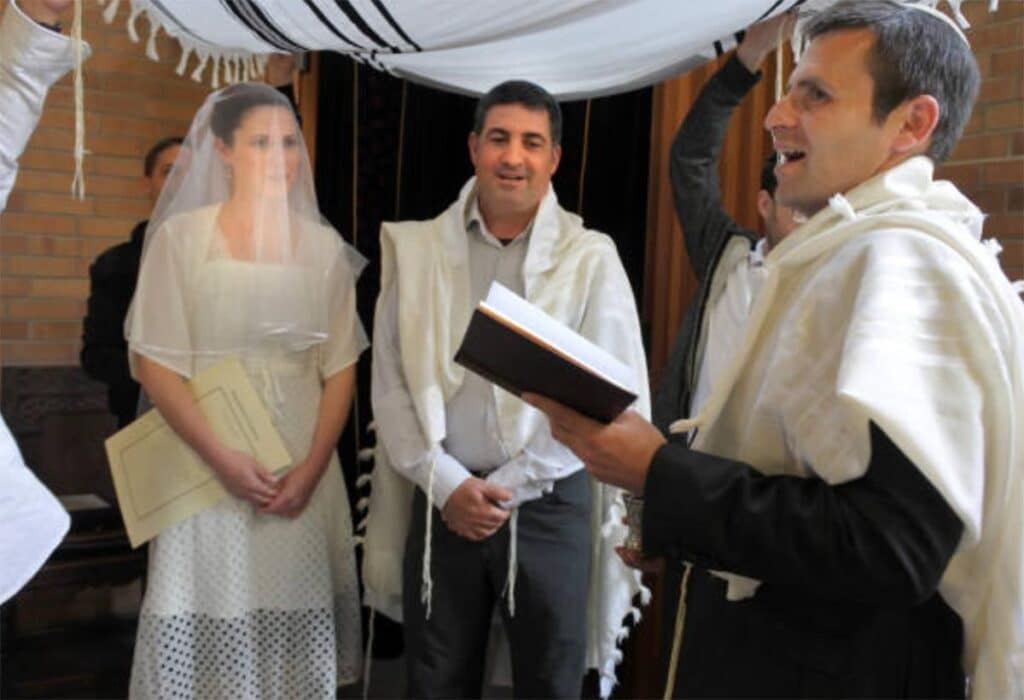Shabbat, the Jewish Sabbath, is a weekly celebration of rest, reflection, and spiritual connection. Among the most heartwarming and cherished experiences in Jewish life is the “Shabbat groom”—a beautiful tradition in which a groom is honored during the Sabbath before or after his wedding. This event is filled with joy, blessings, and strong communal bonds. What makes it even more meaningful is when it’s celebrated in a warm family atmosphere, connecting generations and reinforcing the core values of Jewish heritage.
This article will explore the significance of the Shabbat groom tradition, how it’s celebrated within the family setting, and how modern couples are bringing this age-old practice into contemporary Jewish life. Additionally, we’ll highlight the value of celebrating such an event in a city rich in Jewish history—Jerusalem—and the perfect hospitality of Paamonim Hotel, which offers a blend of spirituality, elegance, and convenience for families and guests.
The Meaning Behind the Shabbat Groom (Shabbat Chatan)
A Sacred Moment Before or After the Wedding
The Shabbat Chatan (translated as “Sabbath of the groom”) is observed on the Shabbat before or after the wedding, and sometimes both. During this time, the groom (and often the bride as well) is honored within the synagogue and at family gatherings. It is an opportunity for the community to bless the couple, offer words of Torah, and celebrate their union in a spiritual setting.
This Shabbat serves as a bridge between the past and future, tradition and new beginnings. It is deeply rooted in Jewish law and custom, emphasizing the sanctity of marriage, the joy of communal life, and the importance of beginning one’s married life surrounded by holiness.
Historical Roots and Halachic Foundations
Jewish texts and sages have long emphasized the importance of the Shabbat groom. While the concept has evolved over time, its foundation remains solid in Jewish law (Halacha). The Talmud discusses communal rejoicing, while later authorities expanded on how to honor the groom within a synagogue and at festive meals.
One key aspect is the Aliyah laTorah, where the groom is called up to the Torah in synagogue. This moment symbolizes his public blessing and readiness to take on the spiritual responsibilities of marriage. Communities often sing traditional tunes and shower the groom with sweets—both literal and metaphorical signs of joy and blessing.
A Family-Centered Celebration
Multi-Generational Bonding
What makes a Shabbat groom celebration truly unique is the family atmosphere in which it takes place. Grandparents, parents, siblings, cousins, and close friends all gather to honor the groom. It is not merely a public event—it is an intimate, sacred gathering of the people who shaped the groom’s life and values.
The family often hosts meals that are filled with divrei Torah (words of Torah), singing (zemirot), toasts (l’chaim), and blessings. Children participate with wide-eyed curiosity and enthusiasm, while elders share wisdom and memories of their own marriages.
The Role of the Bride
Although traditionally the focus is on the groom, in modern Jewish practice the bride (kallah) is also often honored. Families may host parallel or joint meals where the kallah is celebrated, especially in more egalitarian communities. This reflects a growing understanding that marriage is a partnership, and both partners deserve to be uplifted and honored.
Traditional Customs of the Shabbat Chatan
Calling Up the Groom
One of the most central customs is calling the groom to the Torah for an Aliyah. The congregation may chant special blessings, and after the reading, the groom may give a short speech or dvar Torah. Some synagogues shower him with candies, symbolizing sweetness and blessing in the marriage.
Seudah Shlishit (Third Meal)
The Seudah Shlishit, or third Shabbat meal, is often used as a time for intimate reflection and singing. The groom may be honored again with speeches, niggunim (wordless melodies), and personal blessings from friends and rabbis.
Singing and Dancing
It’s common for spontaneous dancing to erupt at various points, especially after the meal or after the aliyah. Family members often join hands and dance around the groom, enveloping him in joy and excitement.
Emotional and Spiritual Significance
Preparing for a New Chapter
For the groom, this Shabbat is more than a party—it is a moment of profound preparation. Surrounded by prayer, Torah, and loved ones, he readies his heart for the covenant of marriage. The family atmosphere reinforces the groom’s roots and reminds him of the values he carries into married life.
Blessings from the Community
There’s tremendous power in communal blessings. The Shabbat groom is publicly uplifted by his entire community, reinforcing that he and his bride are not alone in their journey. The love and support they receive become a spiritual safety net that strengthens their future home.
Creating the Perfect Atmosphere
Home-Cooked Meals
Many families choose to host Shabbat meals in their home, creating a warm and cozy environment. Traditional Jewish dishes like challah, gefilte fish, kugel, and cholent fill the table, along with wine and spirits for toasts. Personalized decorations, photos of the couple, and hand-written blessings add a beautiful touch.
Synagogue Participation
Partnering with a local synagogue is essential. Whether it’s a large congregation or a small neighborhood minyan, the groom’s participation in services adds formality and sanctity to the occasion. Many families choose synagogues where they have longstanding ties.
Paamonim Hotel: Ideal for a Shabbat Groom Celebration in Jerusalem
For those who wish to celebrate the Shabbat groom in Jerusalem—the spiritual heart of the Jewish world—Paamonim Hotel offers the perfect combination of comfort, elegance, and tradition.
Located in the center of Jerusalem, just steps from the Old City and major synagogues, Paamonim Hotel caters to traditional and modern Jewish families alike. The hotel offers kosher catering, Shabbat-friendly services, and beautifully designed suites that are ideal for hosting family and guests. Whether you’re organizing a Shabbat dinner, need a place for out-of-town relatives, or want to spend your Shabbat Chatan surrounded by holiness and history, Paamonim Hotel ensures your celebration is meaningful and memorable.
The warm hospitality, stunning views, and proximity to Jerusalem’s rich spiritual life make Paamonim Hotel a top choice for celebrating the Shabbat groom.
Tips for Planning a Successful Shabbat Chatan
- Start Planning Early
Book your venue, synagogue participation, and catering at least 1-2 months in advance. Especially in Jerusalem, demand is high for Shabbat events. - Include Everyone
Assign roles to family members—readings, blessings, singing, or speeches. Inclusion fosters unity and love. - Prepare Divrei Torah
Encourage guests to prepare words of Torah connected to marriage, love, or the weekly parsha. It elevates the experience spiritually. - Make Room for the Bride
If the kallah is attending, make space for her to be honored as well. You can also organize a women’s Shabbat meal or gathering. - Capture the Moments
Hire a professional photographer or assign someone to document the event discreetly, especially at meals.
The Role of Music and Joy
Music is a central part of the Shabbat Chatan experience. Traditional zemirot, uplifting niggunim, and spontaneous dance all contribute to the joyful atmosphere. Live musicians or a capella groups are often brought in to enhance the experience without violating Shabbat laws.
This music not only entertains—it connects hearts and creates a sense of unity and shared purpose. It mirrors the joy of the couple and spreads it to every attendee.
A Modern Twist on Tradition
While rooted in ancient customs, the Shabbat Chatan is increasingly being shaped by modern sensibilities. Families may incorporate bilingual blessings, digital invites, eco-friendly décor, or inclusive language in speeches. LGBTQ+ couples and interfaith families are also finding ways to honor the tradition in a way that fits their unique story.
In all these variations, the central theme remains unchanged: love, unity, and the sanctity of Shabbat as a spiritual anchor.
Testimonials from Families
“Celebrating my son’s Shabbat Chatan with all three generations under one roof was beyond magical. The divrei Torah, the singing, the hugs—it’s something we’ll treasure forever.” – Rachel, Jerusalem
“We stayed at Paamonim Hotel and were blown away by the service. The staff understood every aspect of our religious needs. Our family felt at home.” – David, Brooklyn
“Our groom was beaming the whole time. The aliyah, the dancing, the meals—it was a beautiful fusion of old-world tradition and modern love.” – Miriam, Tel Aviv
Conclusion
The Shabbat groom celebration in a family atmosphere is one of the most meaningful traditions in Jewish life. It beautifully fuses faith, community, family, and the joy of new beginnings. Whether celebrated in a family home, a synagogue, or a Jerusalem hotel like Paamonim, it stands as a spiritual milestone that uplifts everyone involved.
Planning this event with care, intention, and love ensures that the bride and groom feel honored not just for their commitment to one another—but for their place in a long, rich heritage of Jewish life.




